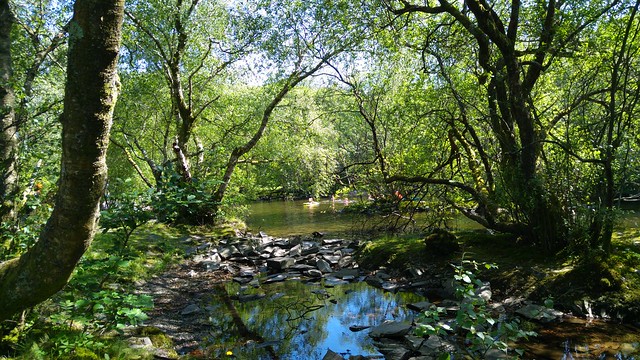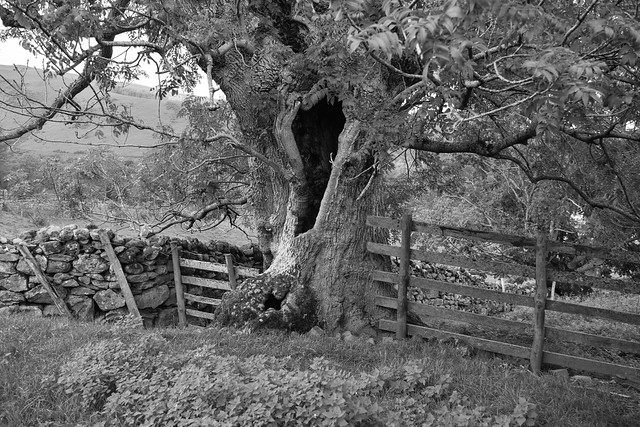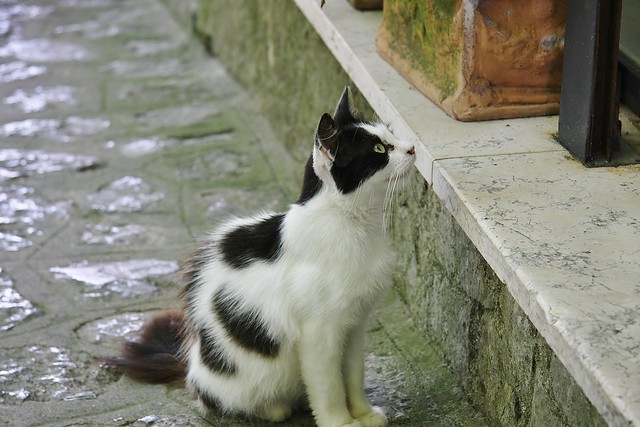Podcast: Play in new window | Download
In this episode we’re exploring the roots of Celtic words for tree and related things.
One Proto-Celtic word for tree is *belyom, which comes from Proto-Indo-European *bʰolh₃yo- (leaf), from *bʰleh₃- (blossom, flower) [source].
Descendents in the modern Celtic languages include:
- bile [ˈbʲɪlʲə] = (large, sacred) tree, a scion or a distinguished person in Irish.
- bile [bilə] = mast, plough, a cluster of trees, or a sacred tree or grove in Scottish Gaelic
- billey = tree or big bush in Manx
- pill [pɪɬ] = (tree) trunk, stock, log, branch, pole, stake, post, fortress or stronghold in Welsh.
- bill = trunk in Breton
In Manx billey is the usual word for tree, however words for tree have other roots in the other Celtic languages: crann (Irish), craobh (Scottish Gaelic), coeden (Welsh), gwedhen (Cornish) and gwezenn (Breton). Only the Cornish and Breton words are cognate (related).
The Proto-Celtic word *belyom became *bilia [ˈbi.liaː] (tall tree) in Gaulish, which became bille (tree trunk, railway sleeper, rolling pin) and billon (a ridge in a ploughed field) in French, and possibly billa (spigot, tap, stick) in Galician [source].
Words from the same PIE roots include folio and phyllo / fil(l)o (pastry), phyllomancy (diviniation by leaves) in English, feuille (leaf, sheet) in French, and hoja (leaf, petal, blade) in Spanish [source].
You can find more details of words for trees, wood(s) and forests and related things on the Celtiadur blog. I also write about words, etymology and other language-related topics on the Omniglot Blog.
Radio Omniglot podcasts are brought to you in association with Blubrry Podcast Hosting, a great place to host your podcasts. Get your first month free with the promo code omniglot.












